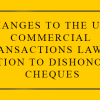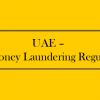What is it?
Offshore company means a company formed in the jurisdiction which is considered offshore relative to the home jurisdiction.
It is incorporated for the purpose of operating outside the country of its registration and/or the place of residence of its directors, shareholders and beneficial owners.
This is typically structured to maximize and realize various legal, tax and financial benefits.
In the United Arab Emirates, the offshore company is permitted to be formed in some of the free zones, e.g., Jebel Ali Free Zone and the Ras-Al-Khaimah Free Zone.
Free zone is specific delineated duty-free enclave and is considered a foreign territory for the purposes of trade operations, duties and tariffs, the aim of which is to attract foreign direct investments.
Offshore company has a special status in the free zone as opposed to onshore company in that zone.
Offshore company means the company registered in free zone, but, unlike the free zone onshore company, all the activities of offshore company must be outside of UAE (some exceptions being; purchase of real estate in UAE and holding of shares of other companies in UAE). The company is not required to have a real office space.
Offshore companies are however allowed to:
- Have a consultancy services such as legal, accounting, auditing, management or similar services from the companies based in the UAE.
- Prepares and maintains books and records within the UAE.
- Holds meetings of its directors or members within the UAE.
- Holds a bank account in the UAE based banks for the purpose of conducting its routine operational transactions.
What are the differences between offshore and onshore companies?
Following are the typical differences between offshore and onshore companies
|
Offshore Company
|
Onshore Company |
| Can do business outside UAE only (some exceptions are buying real estate and holding shares in the UAE) | Can do business within that free zone or mainland wherever incorporated |
| No need to have real office space and therefore can reduce cost significantly | Must have a real office space |
| No visas granted | Visas are granted relative to the office space |
| No audit requirement | Must be audited (depending upon free zone to free zone or mainland) |
| Very quick to set-up; low set-up fee and low cost of yearly maintenance | Takes some time to set-up; set-up fee and yearly maintenance costs are relatively higher |
| Simple and easy governance framework and laws | Relatively sophisticated laws and reporting requirement |
Purpose of setting-up offshore company and its key features
Commonly cited uses of offshore companies include uses as special purpose vehicles for specific project to limit the liability, holding companies, trading vehicles, joint ventures, stock market listing vehicles, asset holding structures, consulting business and private wealth holding vehicles.
The otheruses or advantage of the offshore company are confidentiality and secrecy surrounding the shareholders and directors, optimizing returns by tax planning and regulatory arbitrage.
Like other companies, an offshore company also known as an international business company (or an offshore IBC) may enter into contracts, open bank accounts, purchase and sell various products and services and own property.
Although the IBC is exempted from all kinds of taxes in its home jurisdiction it may need to pay taxes where it does business.
The liability of the offshore company is limited to its shares. Shareholders are the owners of the company however the company must appoint directors to manage the affairs of the company.
Why incorporate an offshore company in the UAE?
1 Jurisdiction Advantage
The Offshore company in the UAE favorably differs from alternative jurisdictions in other countries, where offshore companies can be formed.
The United Arab Emirates being the business hub of middle-east is headquartered to most of the international and regional company for this region.
The United Arab Emirates have tiredly built a strong reputation of a solid and tax-free jurisdiction and is globally respected.
Due to the compliance with all international best practice requirements on anti-money laundering the UAE have never been black listed as a country failing to comply with such regulations.
In spite of there being no taxes, the country was never considered by international anti-money laundering organizations as a grey jurisdiction thus utilizing such company for international business and tax planning has its clear advantages.
On top of it, the United Arab Emirates have the very sound reputation as the strong international player and as the developed business hub providing solid base for thousands of companies from worldwide.
2 Taxation
The UAE offshore company is exempted from all kind of taxes thus enabling the investors to optimize their return on investments.
3 Anonymity
There is no public registry of shareholders and director and therefore their identity remains anonymous. All the transactions are done in the name of the offshore company.
Moreover, the UAE did not sign the directive and the agreement with the OECD (Organization for Economic Co-operation and Development). Therefore, as of today, the offshore companies registered in UAE are one of the most effective protection instruments of confidentiality and investors rights.
4 Ease of Incorporation and Compliance
The company is relatively quick and easy to incorporate with minimal paperwork.
The compliance reporting requirements for offshore companies are very limited, especially in comparison to companies, registered in onshore jurisdictions.
The offshore companies are not required to do audit or file annual accounts or reports. Instead, local authorities charge a flat annual licence fee, which is insignificant in comparison to reporting expenses and taxes in onshore jurisdictions.
5 Operating Costs and Fees
With limited reporting requirements, offshore companies generally have lower maintenance and operating fees. The cost of compliance, preparation of accounts and auditing in on-shore companies are often considerable while offshore companies save on these particular expenses.
Fee for having registered office (which is the office of the local agent*) is also significantly lower than leasing office premises. A virtual office could be also set up at the registered address of the company to further lower the effective costs of running one’s business.
*Offshore companies must be represented by the registered local agent in front of the authority.
Documentary requirements for registering an offshore company in Ras Al Khaimah
For setting-up, an IBC in Ras Al Khaimah, typically following documents are required.
If the shareholder is a corporate entity
- Certificate of Incorporation
- Certificate of Incumbency or Certificate of Goods Standing not more than three months old
- Memorandum and Articles of Association
- Valid Passport copies of proposed Directors of the offshore company.
- Bank Reference Letter not more than three months old in the name of company.
If the shareholder is an individual person
- Valid Passport copy of all the shareholders and directors;
- Original Bank reference letter for all shareholders and directors;
- Curriculum Vitaefor all shareholders and directors;
- Originals of utility bill confirming the permanent address and showing the P.O. Box number; and
- Power of Attorney in case the shareholder wishes to authorize a specific person to sign on his behalf.
The above information is provided only for general guidance. Legal advice from the lawyer or a law firm in UAE should be obtained to evaluate your specific circumstances.






